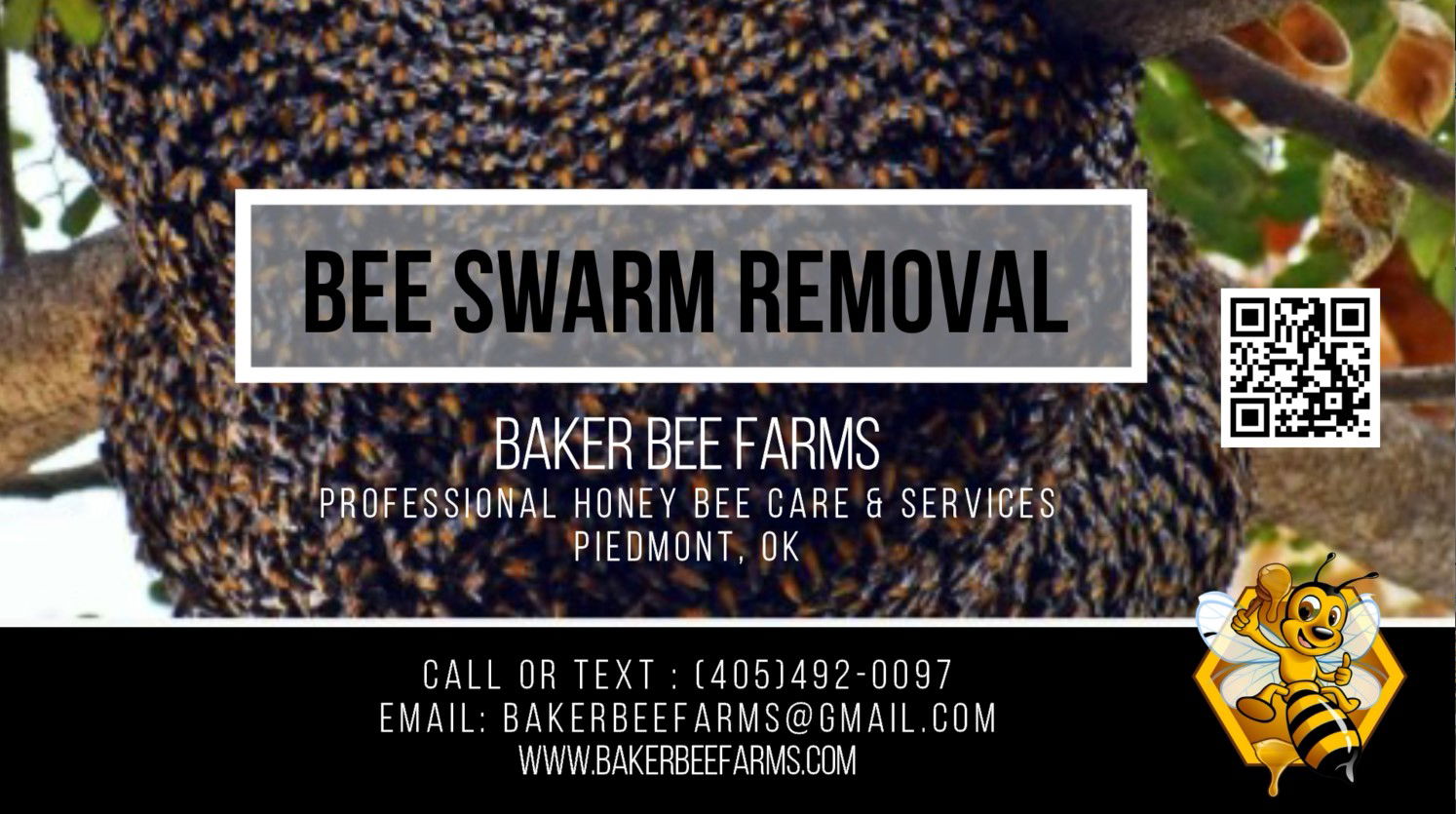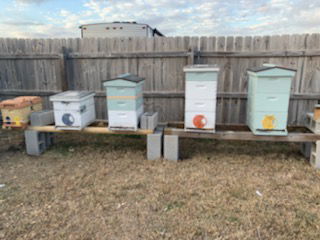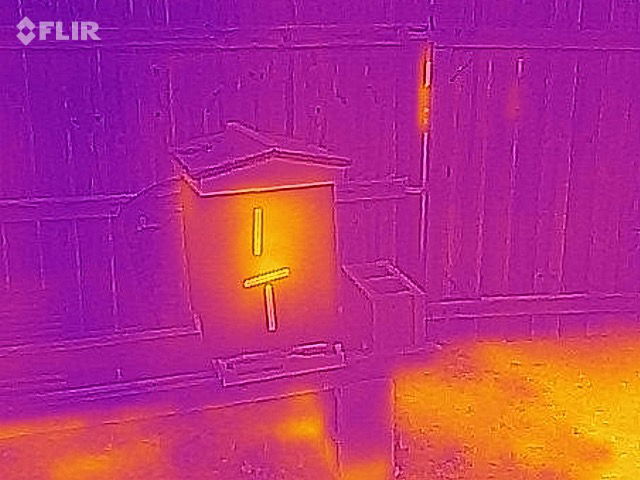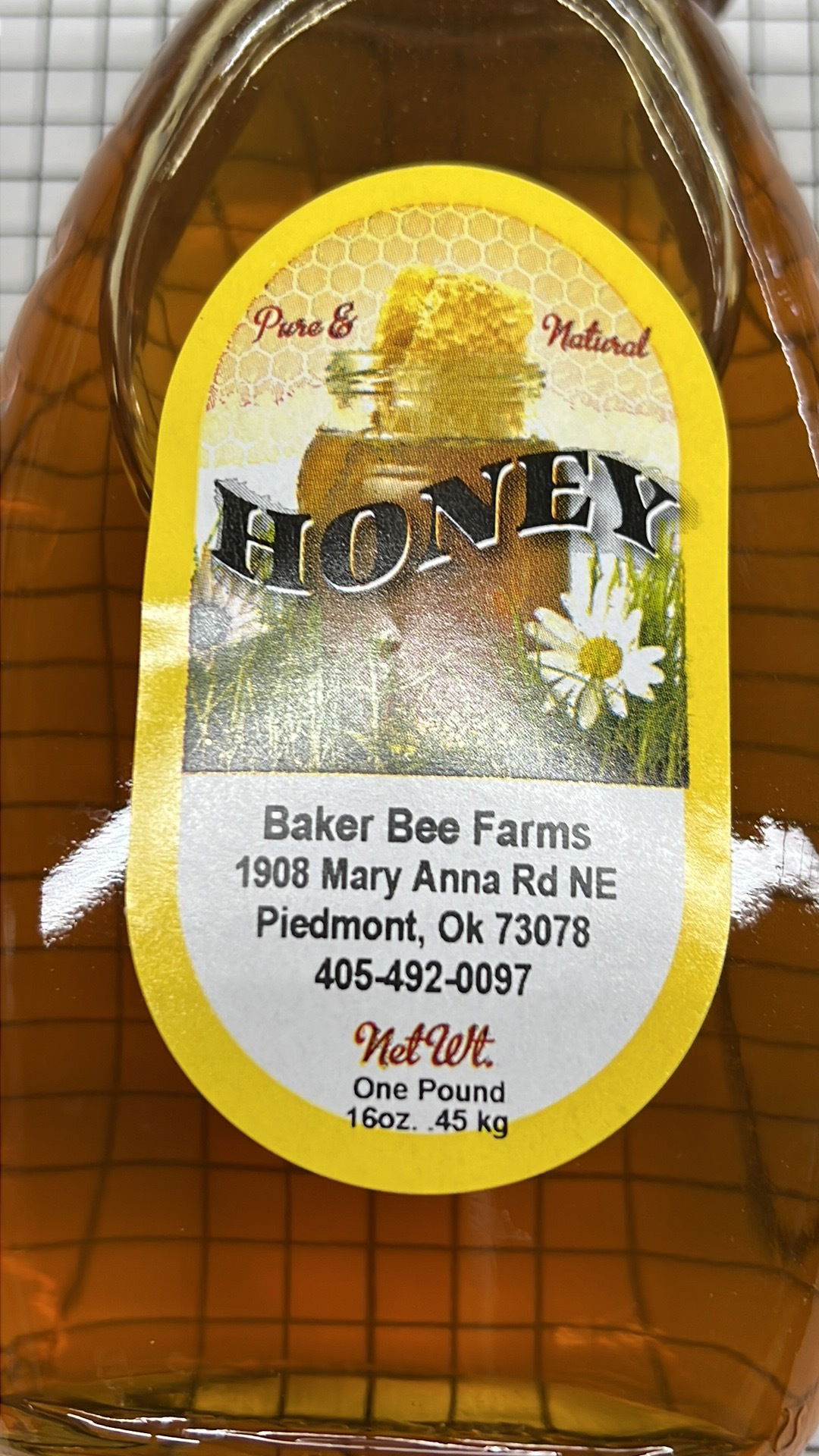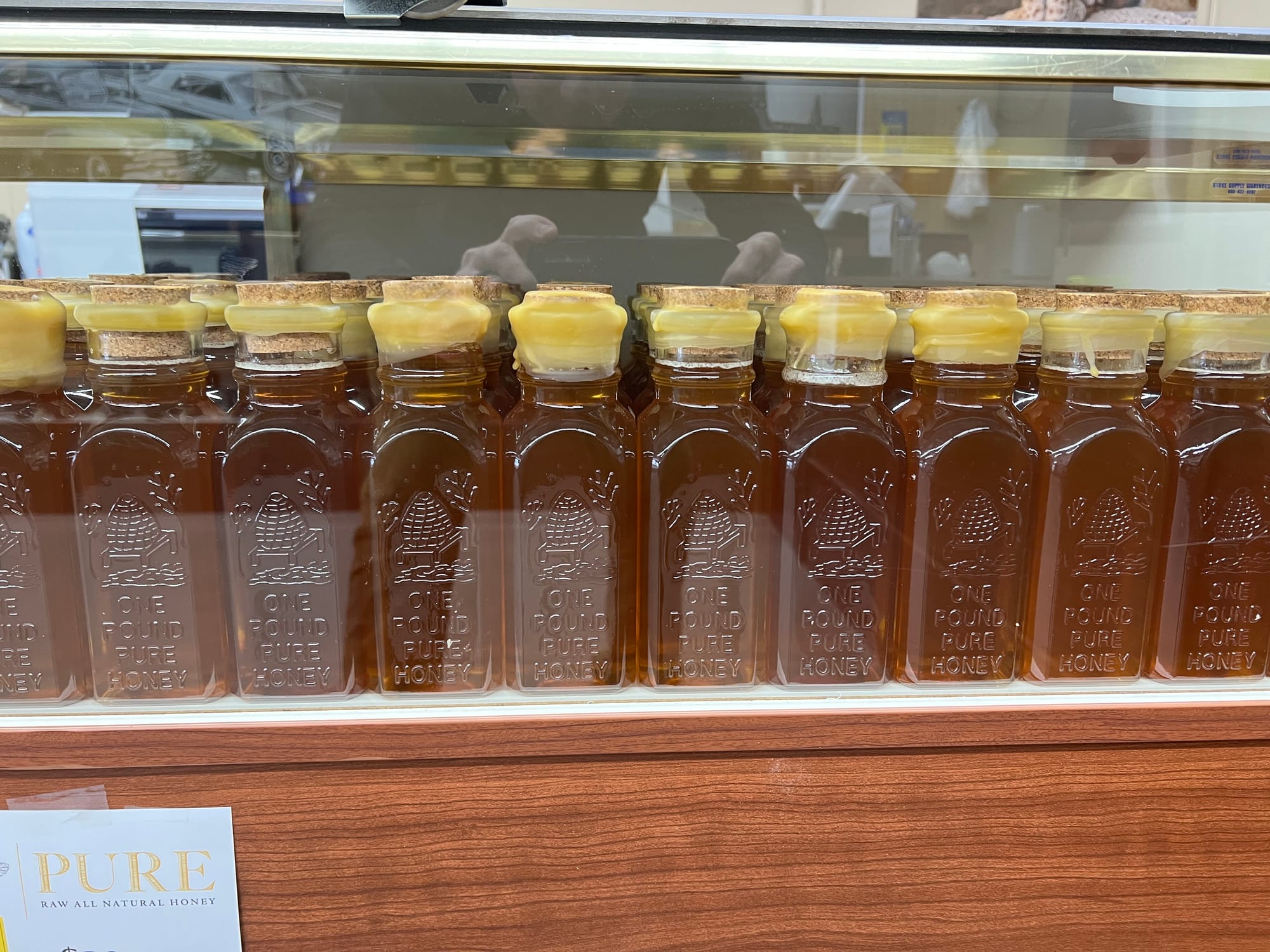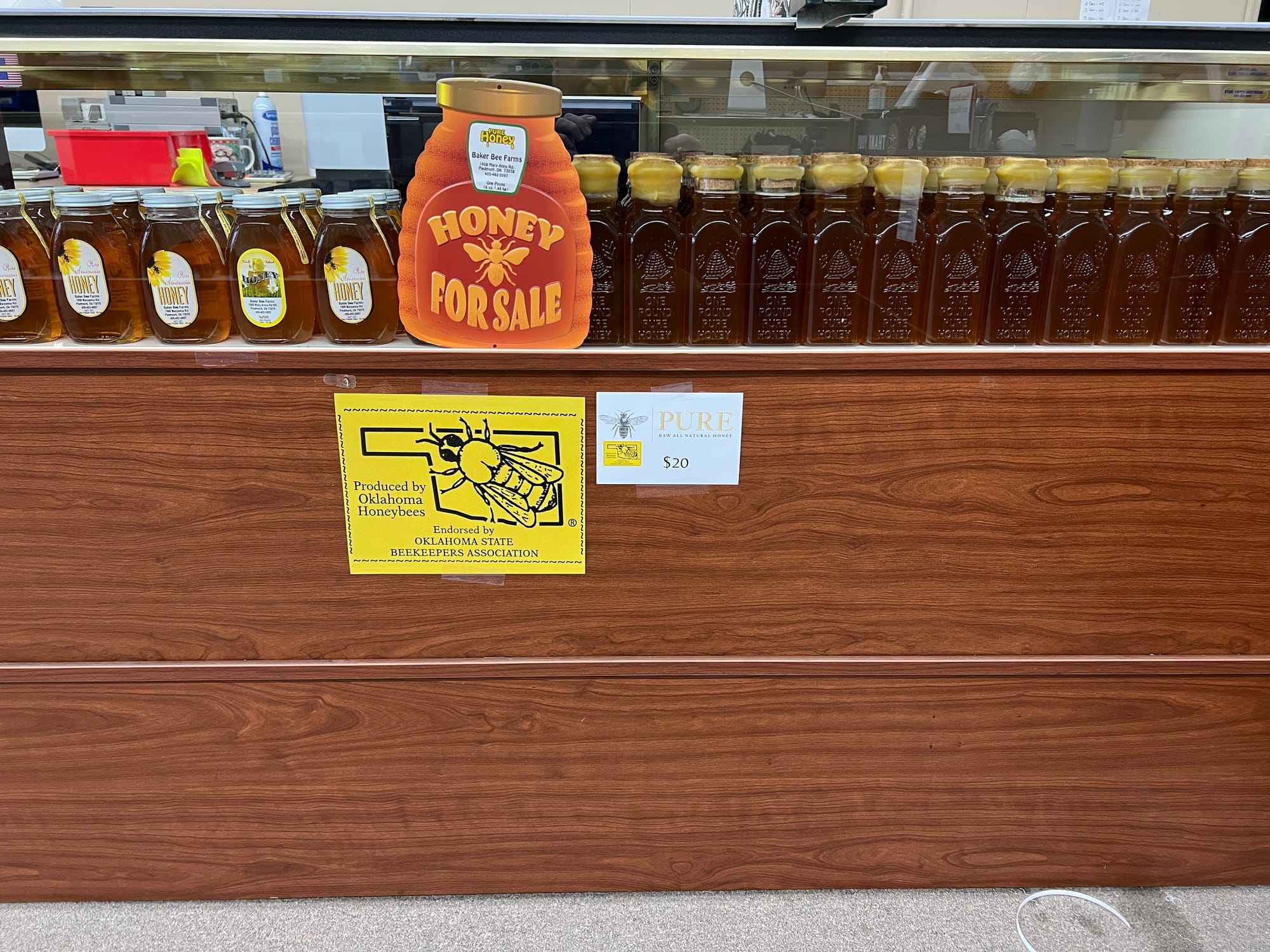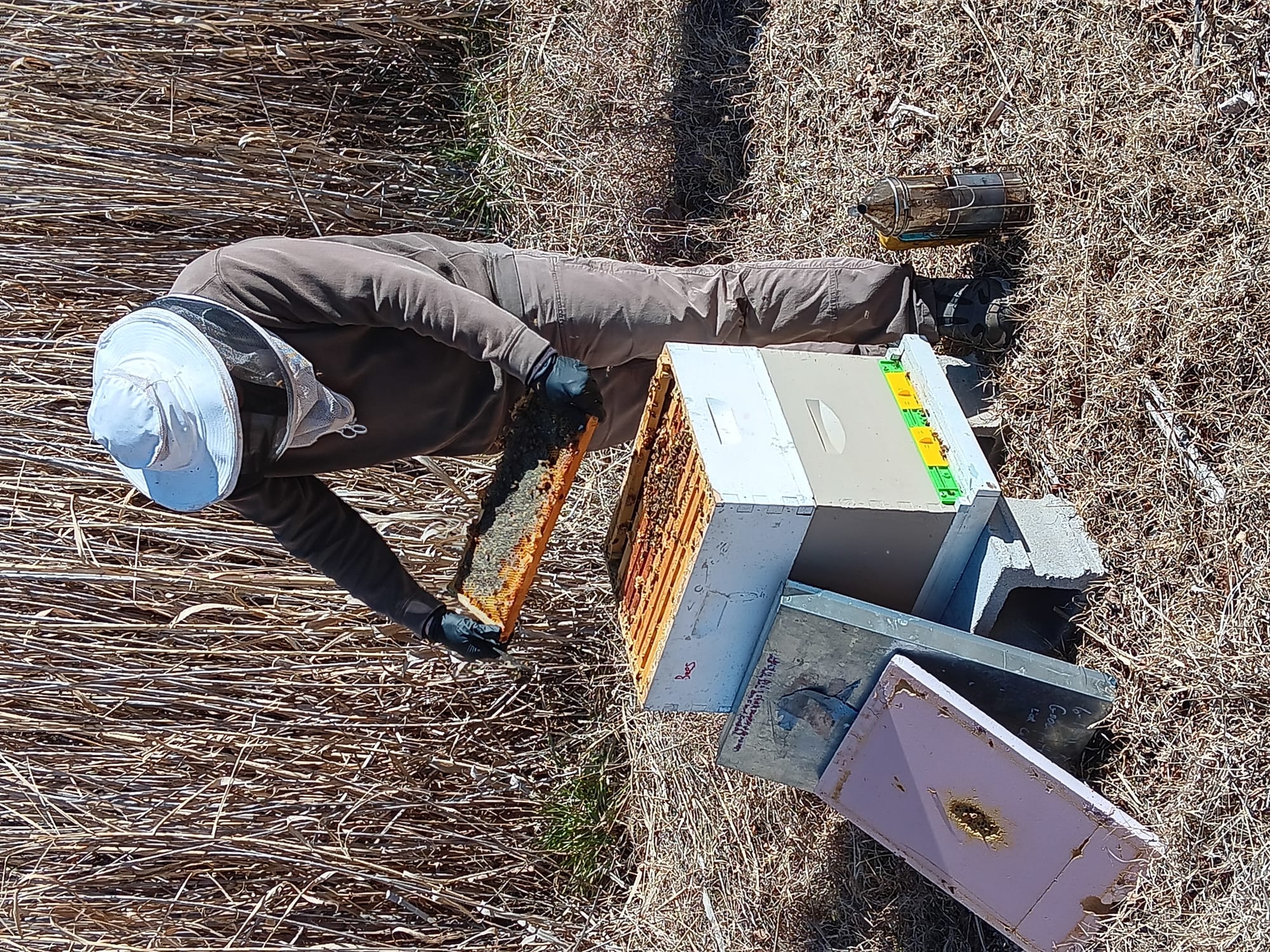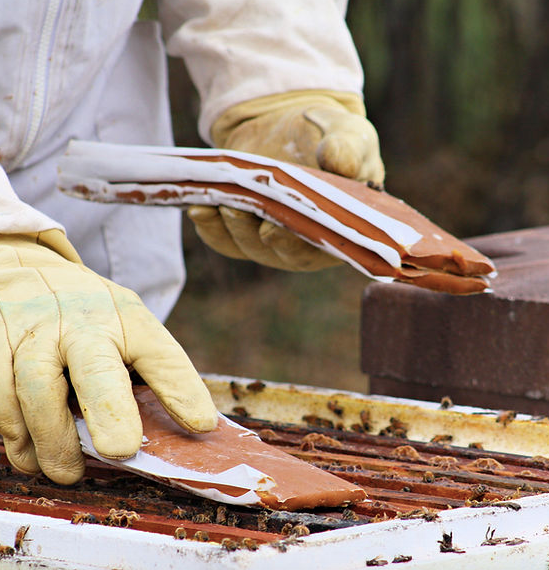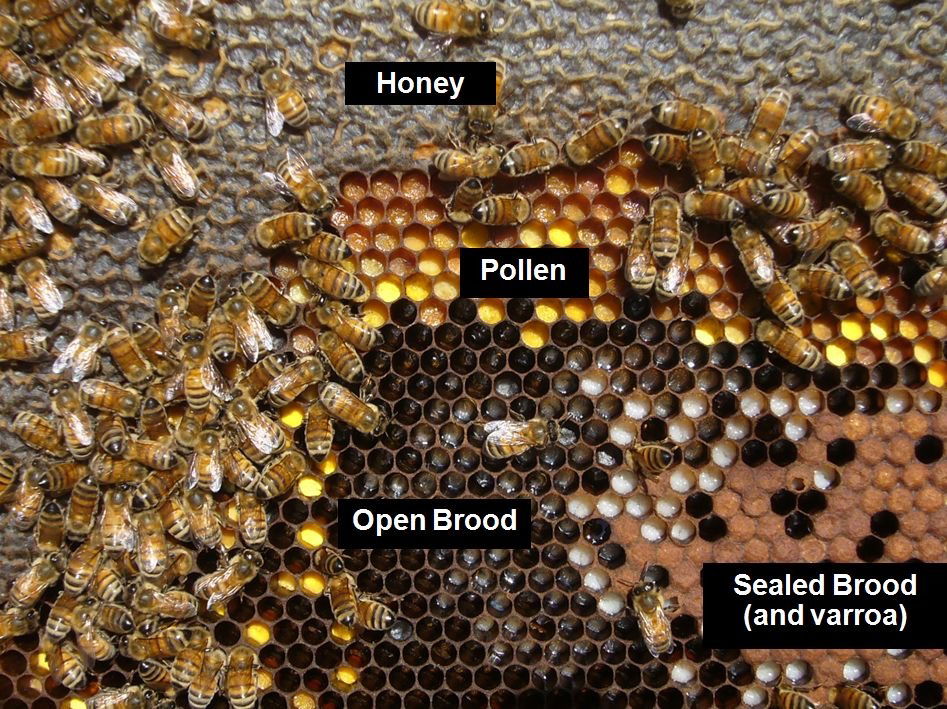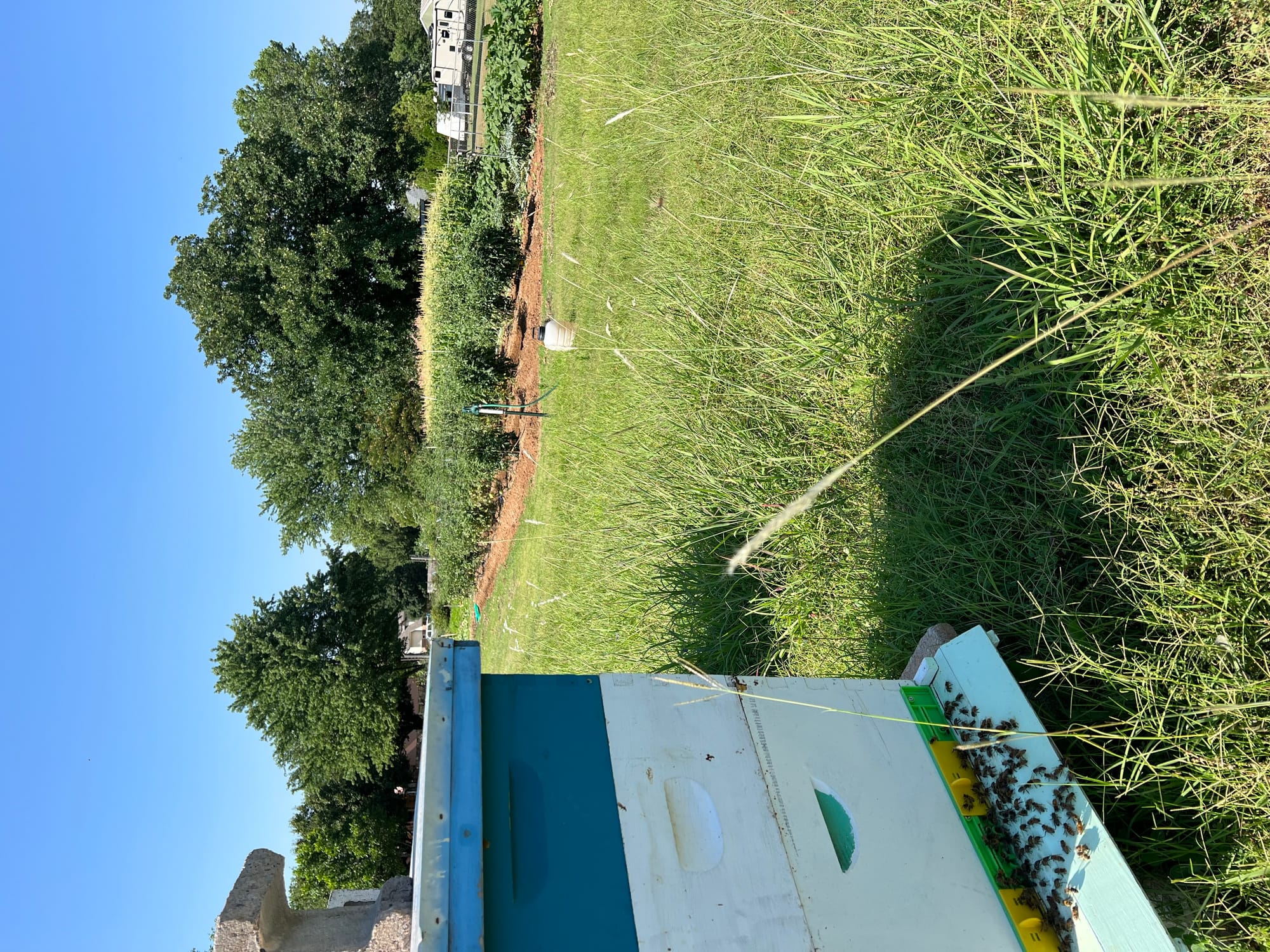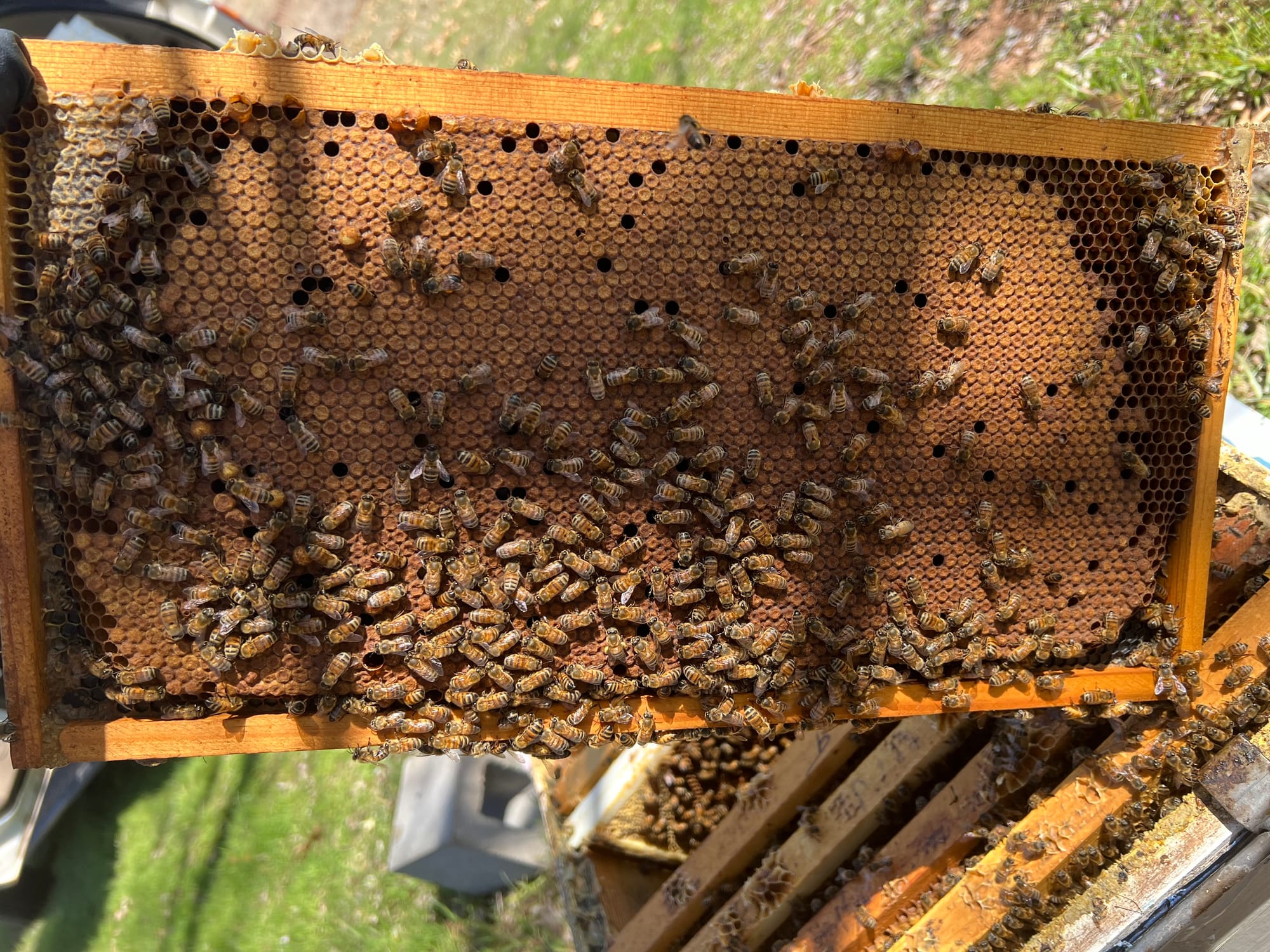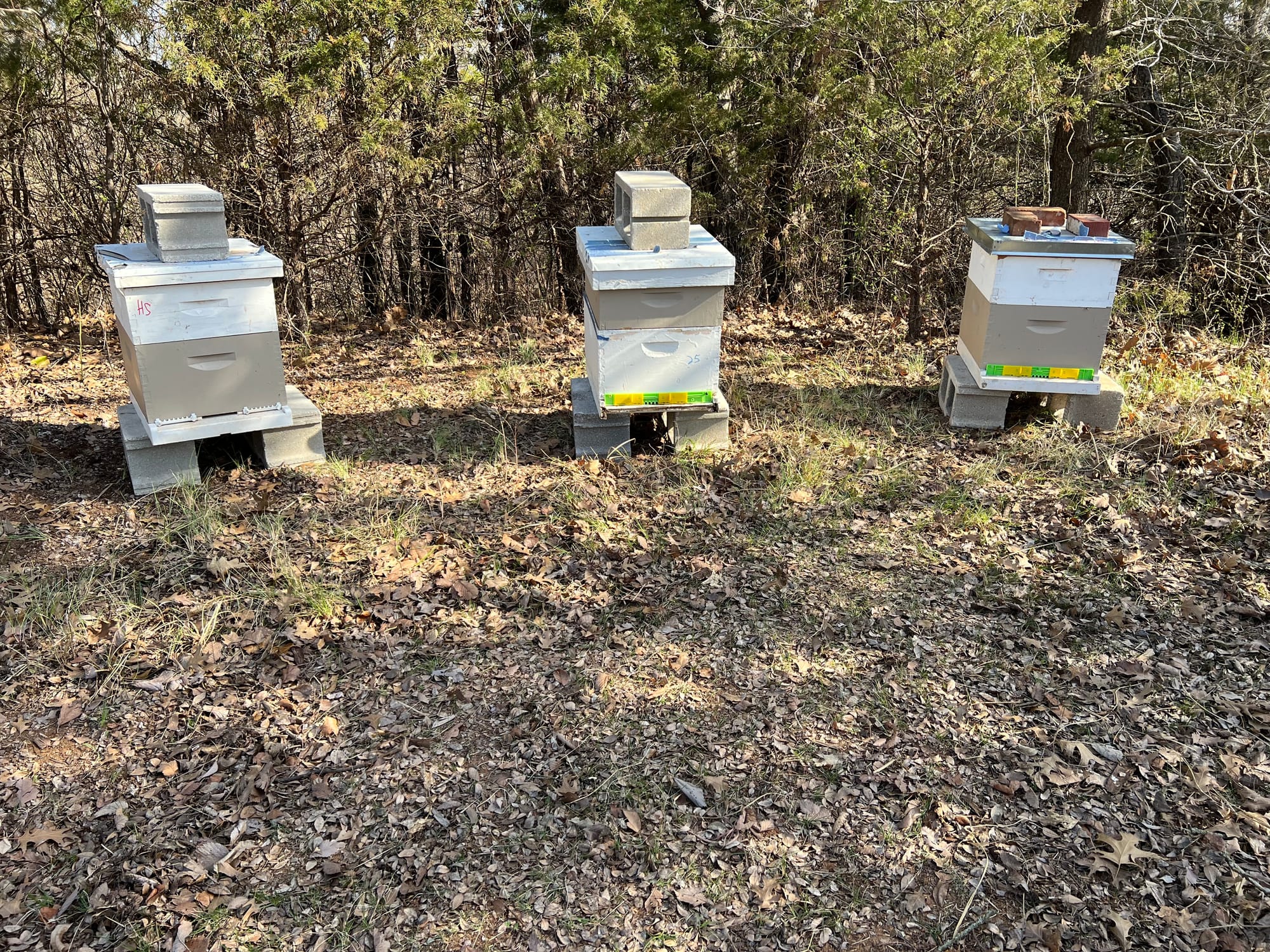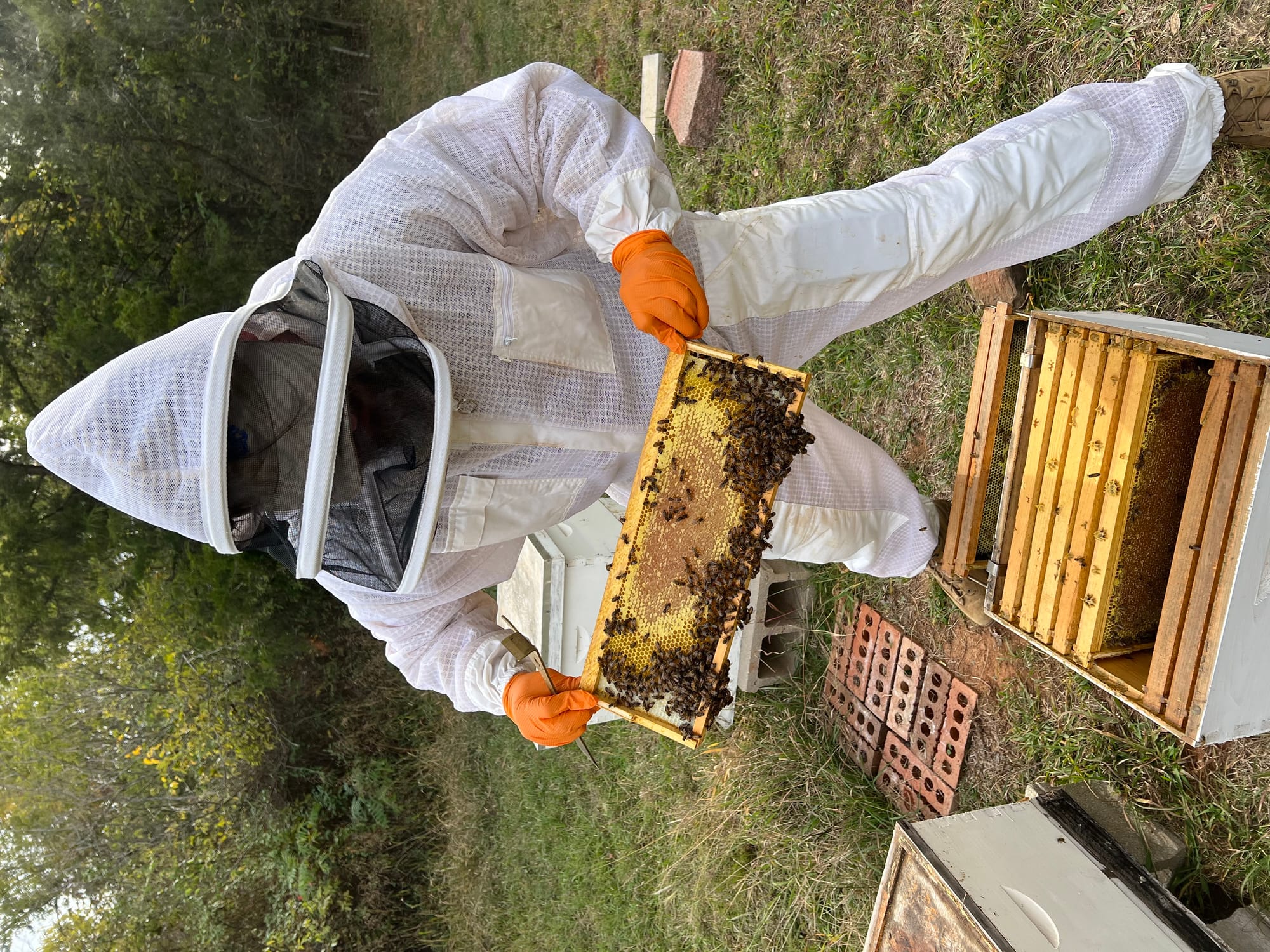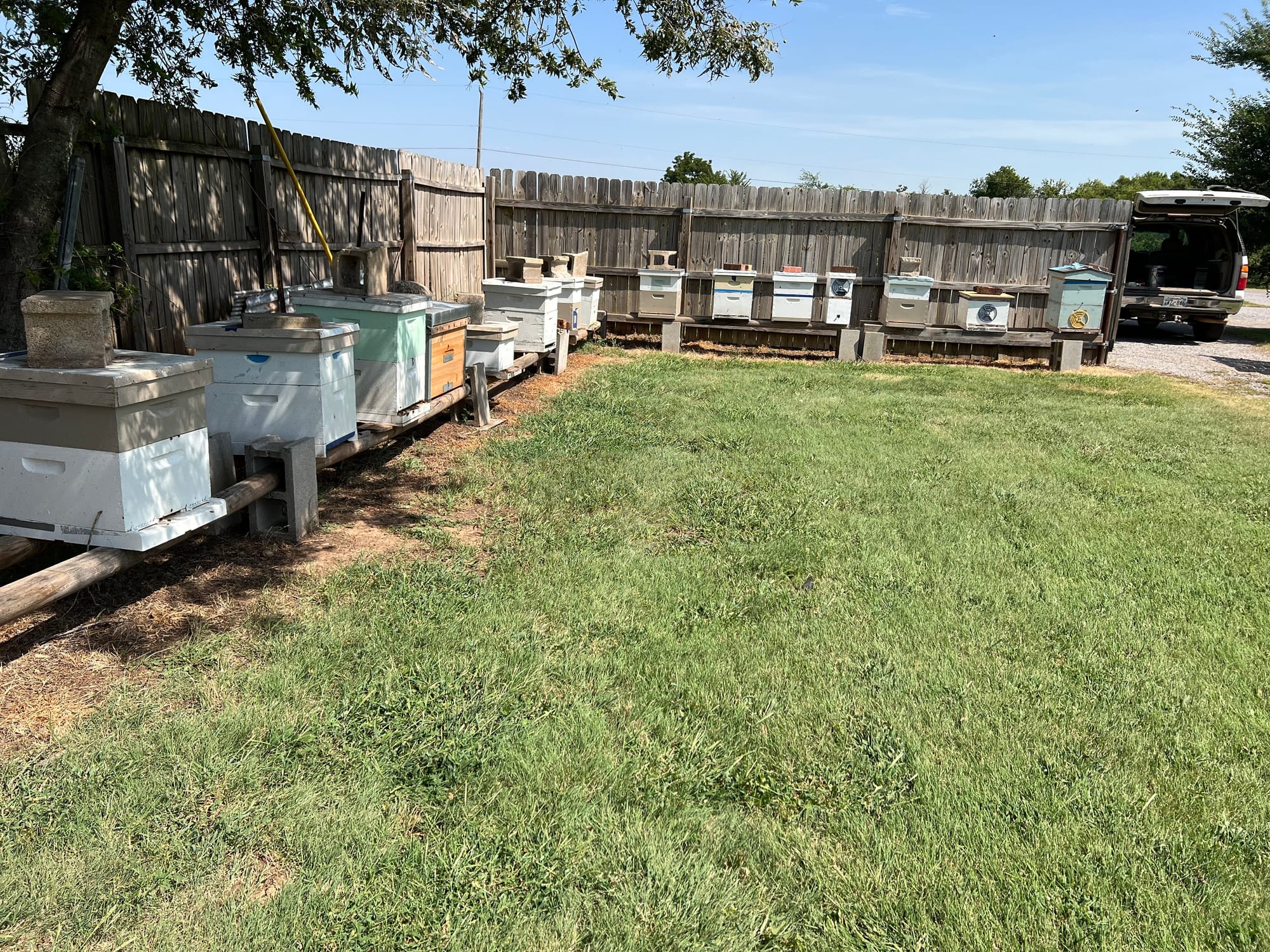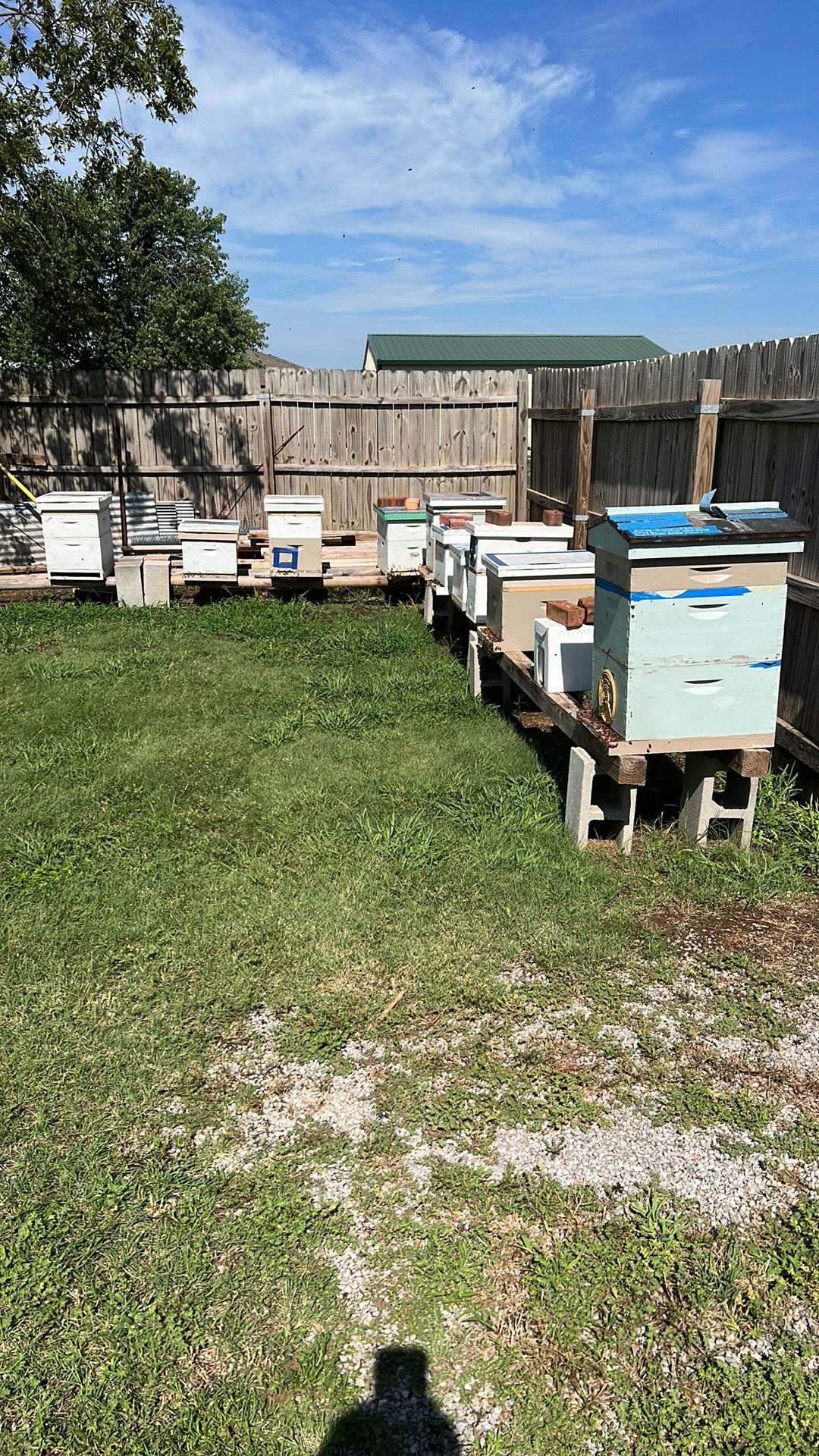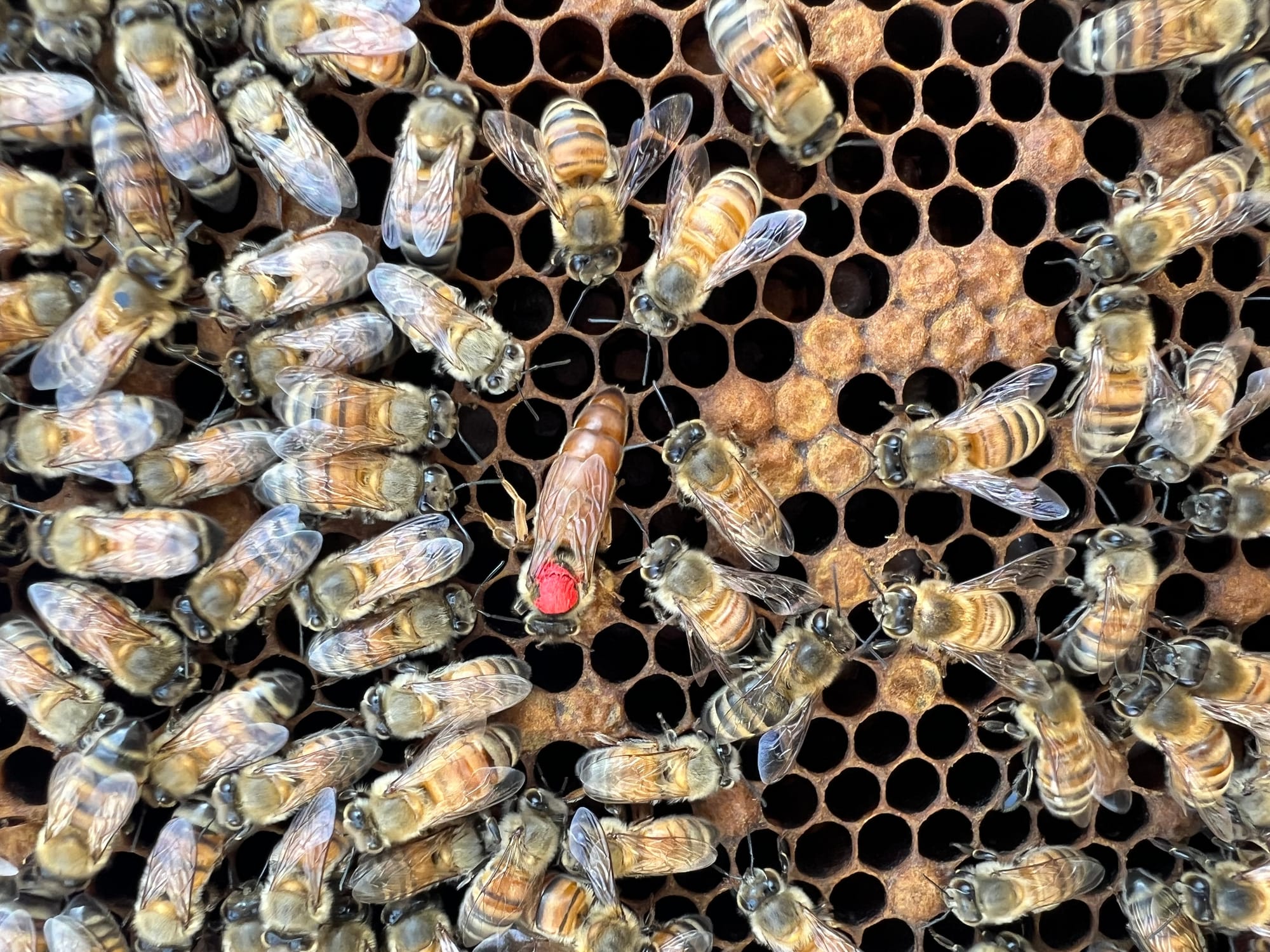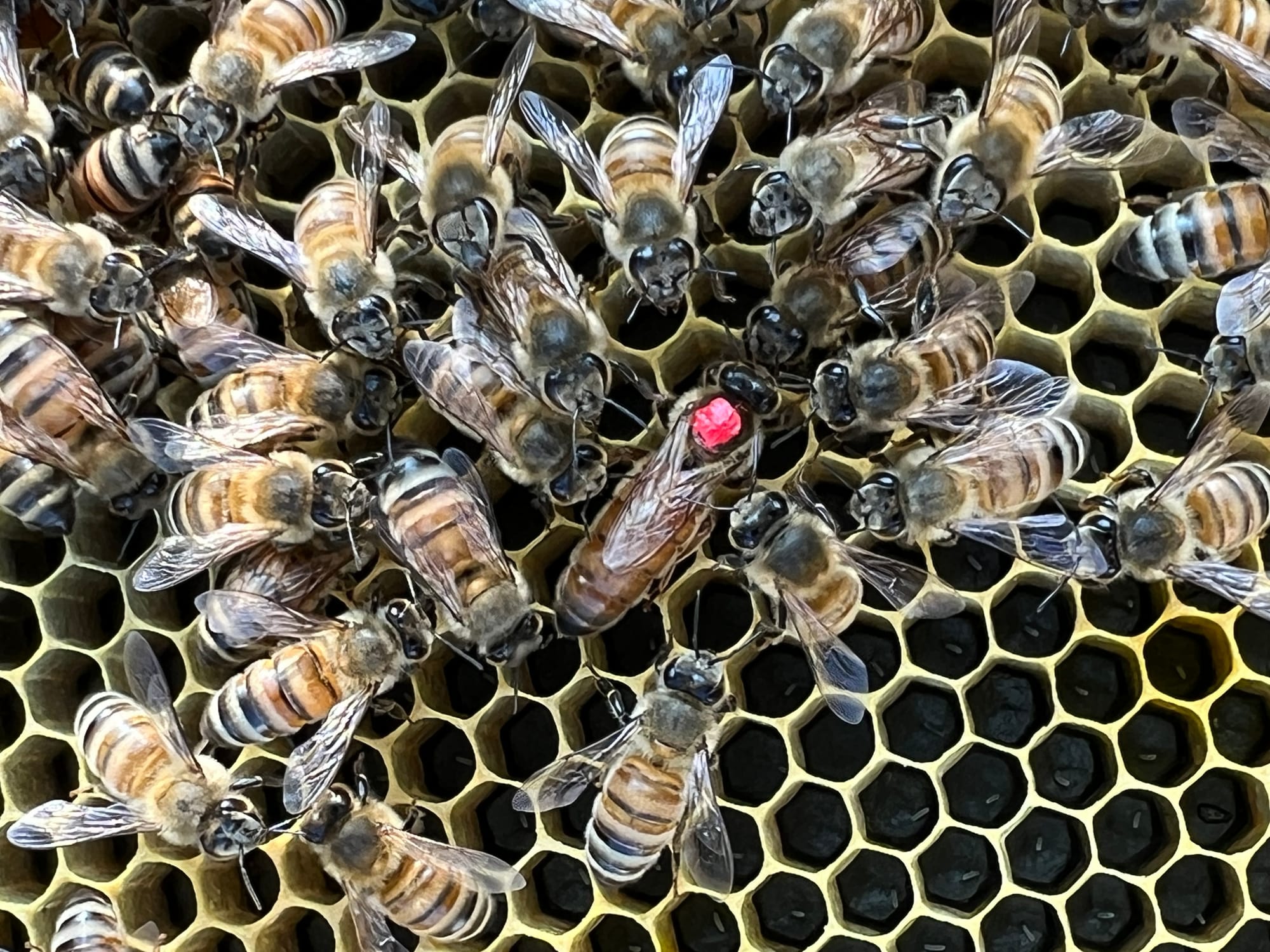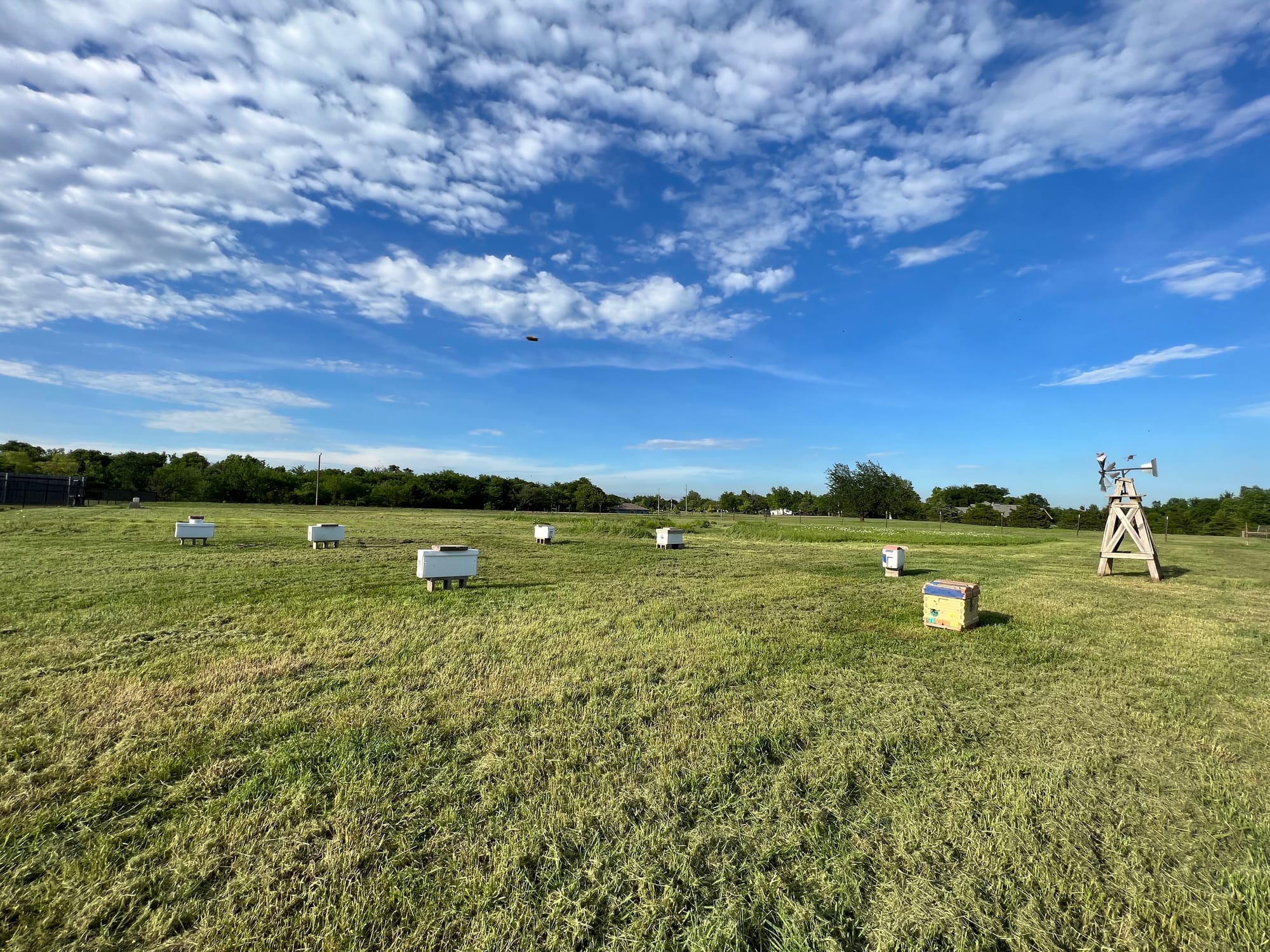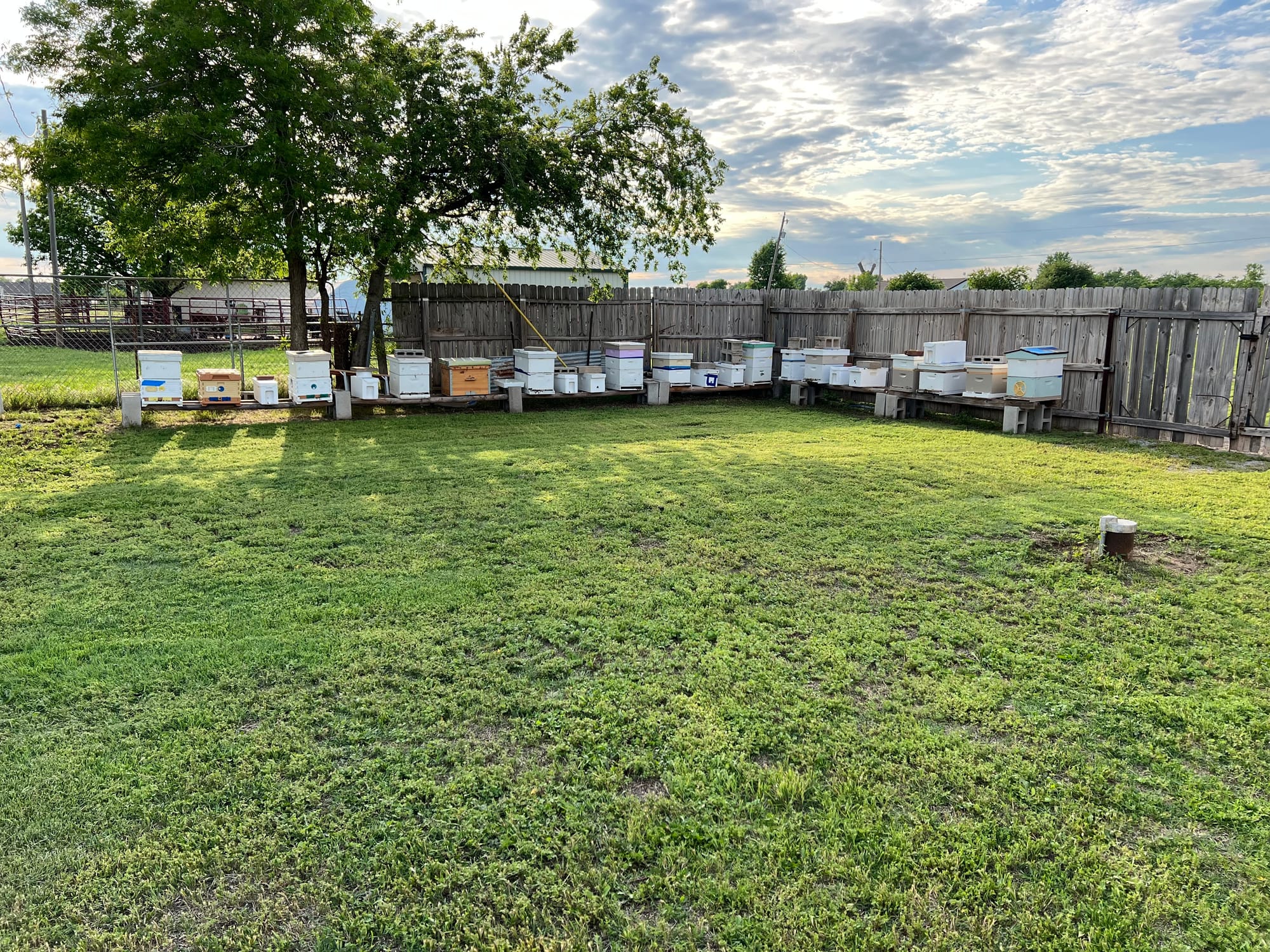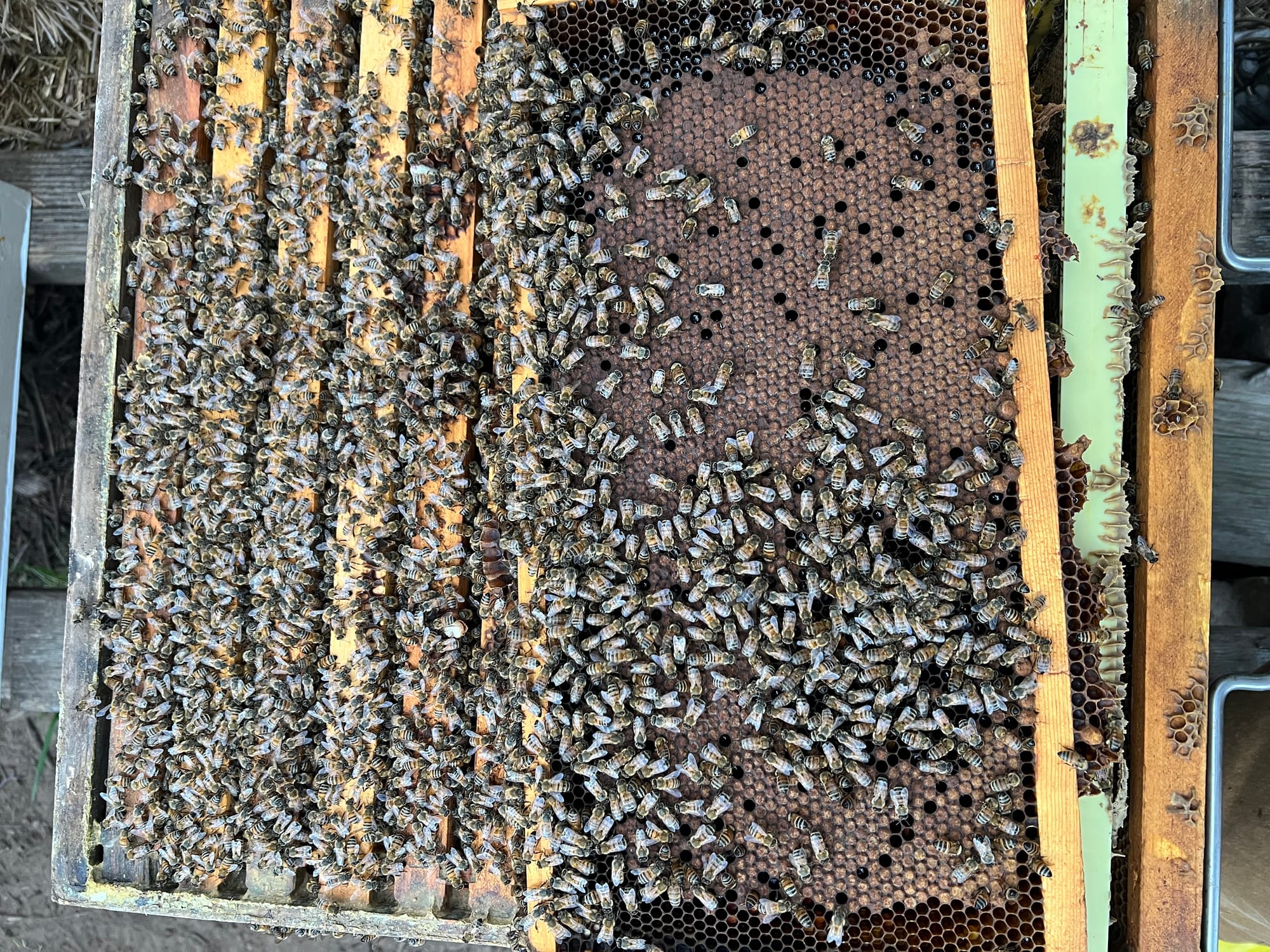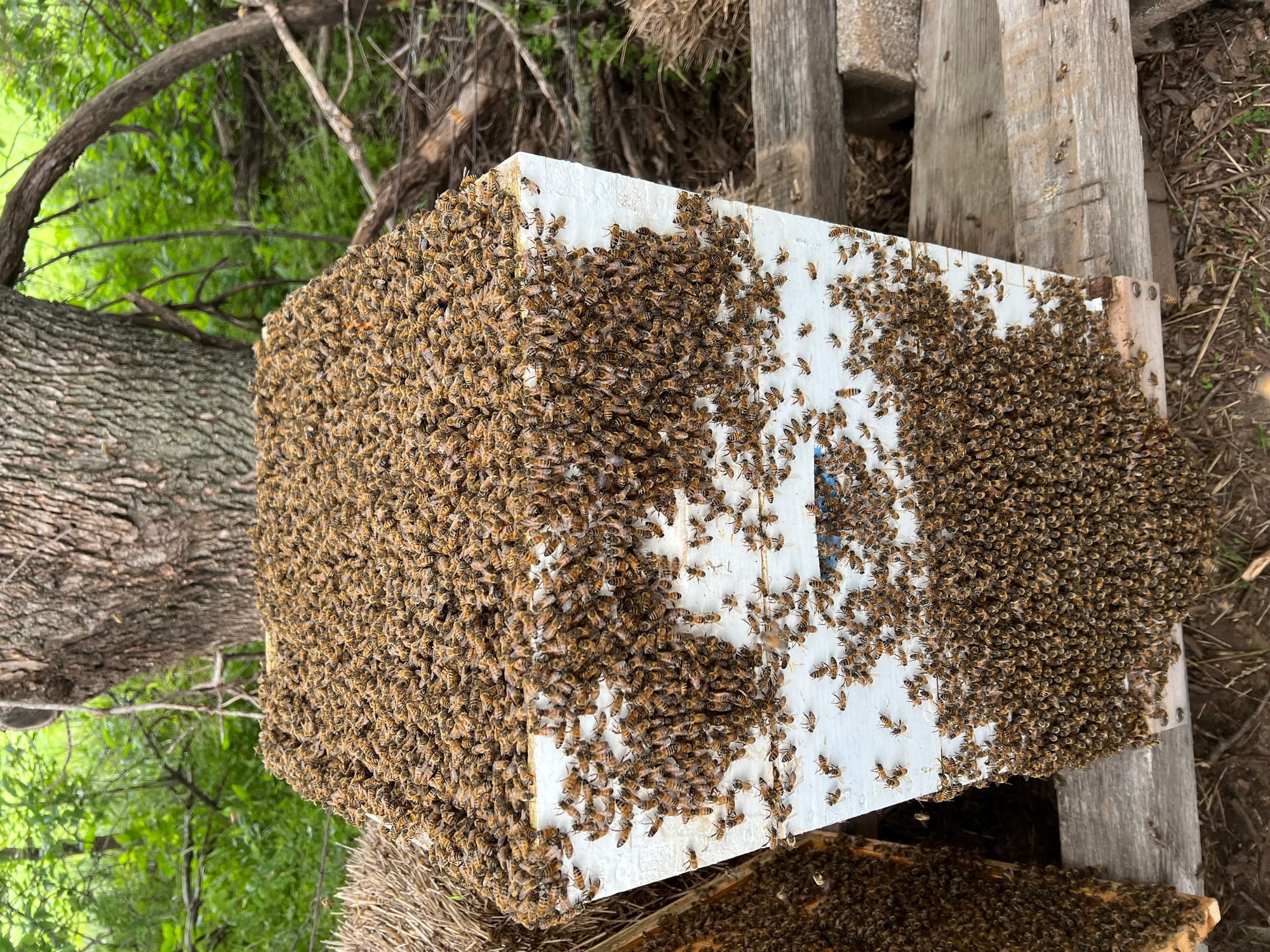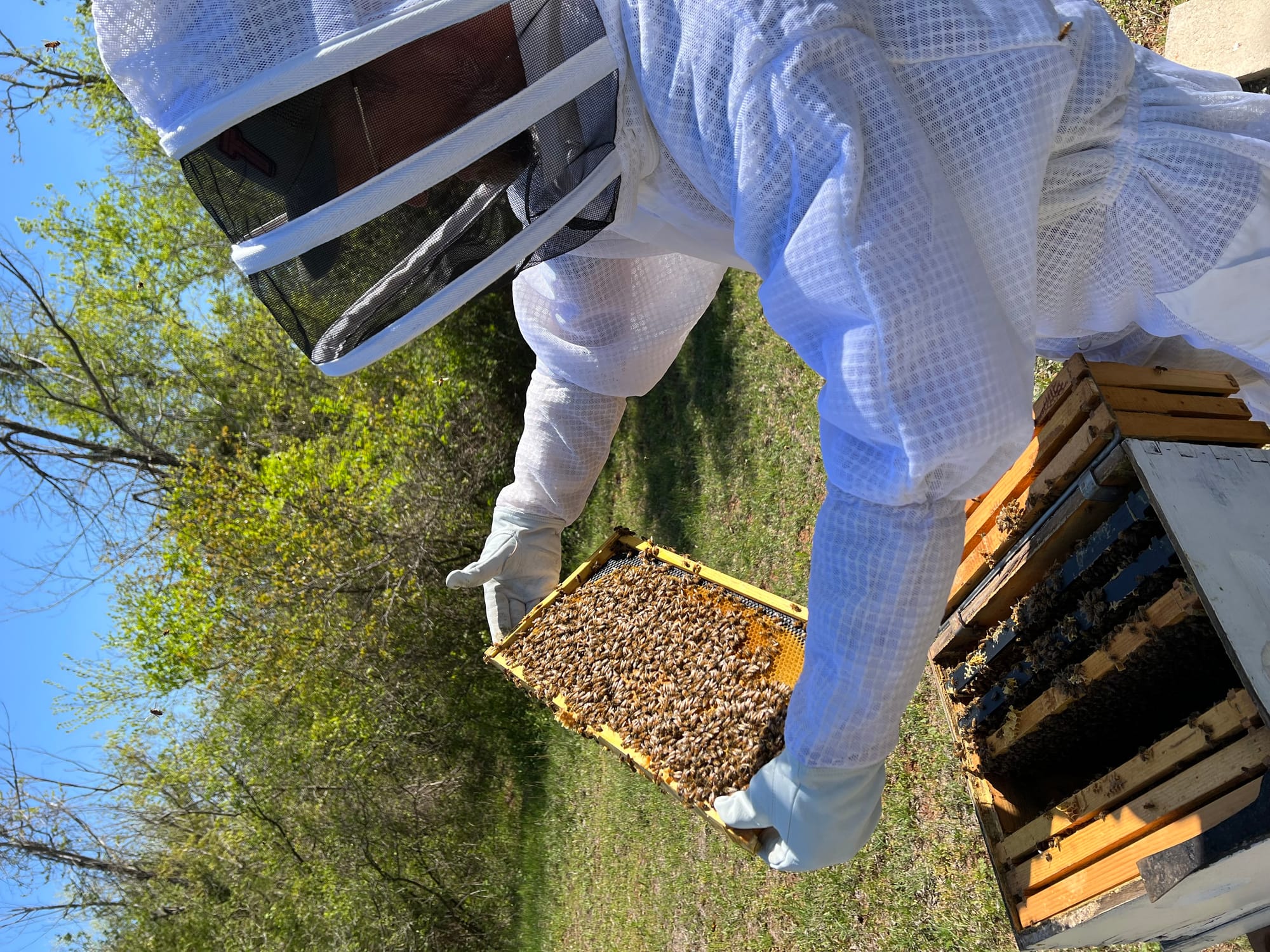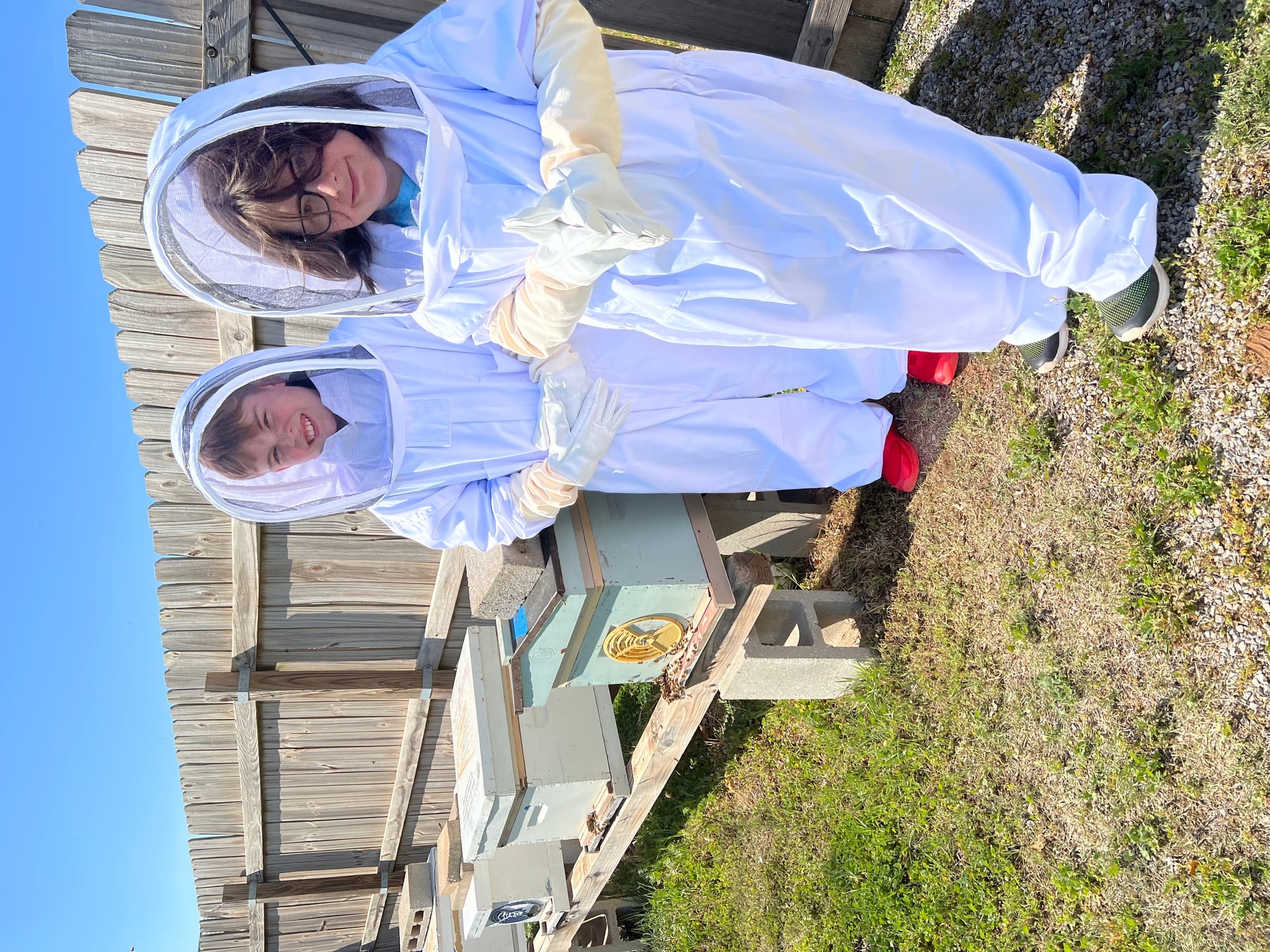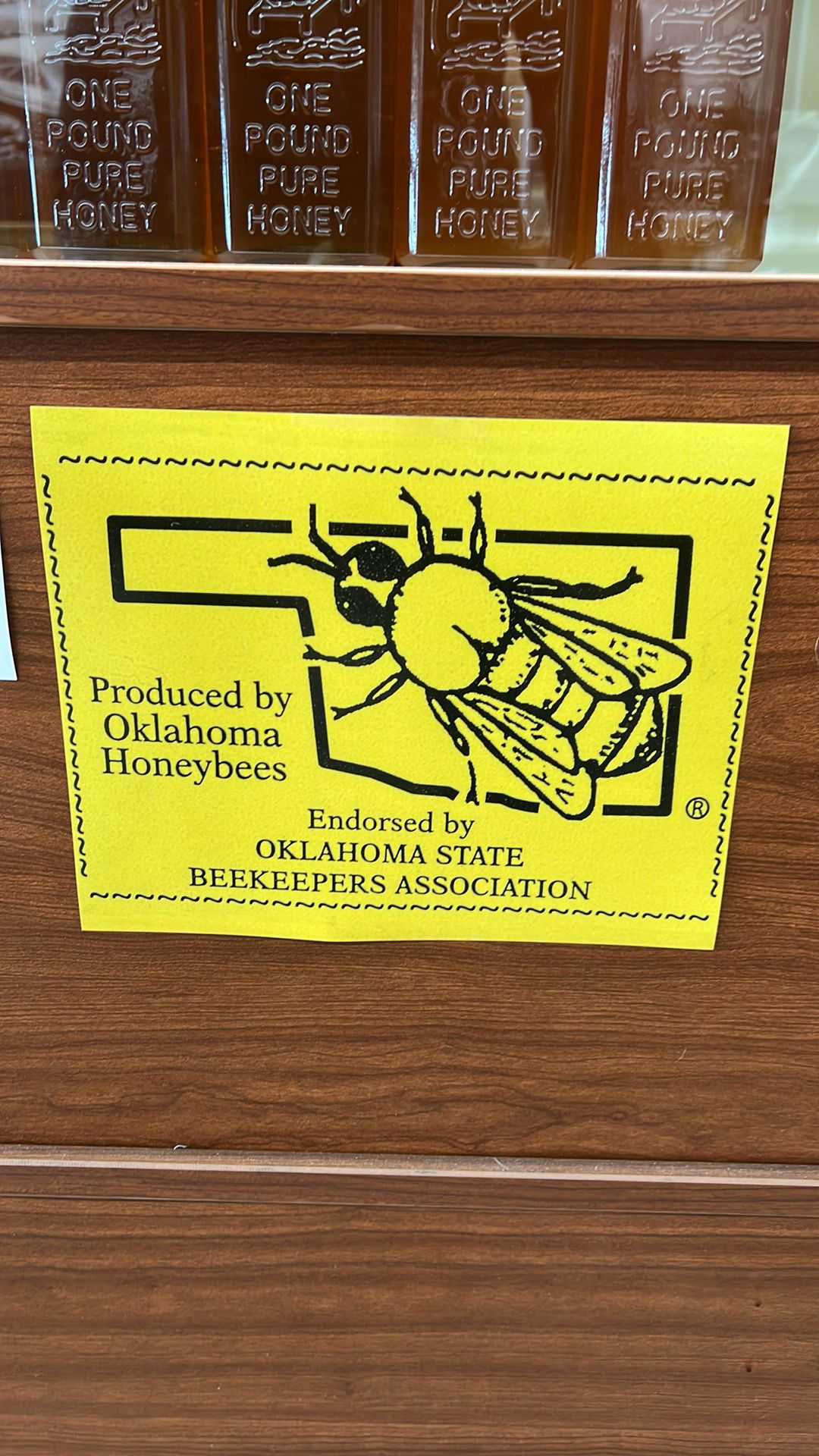New Arrival
Products
About Us
Services
2025 Nucs available for pre-order $225
We are taking orders for the spring of 2025. Our Nucs come with 5 full frames of bees with a great laying queen, honey, pollen, and all types of brood.
Oxalic Acid Vaporization Mite Treatment
Oxalic Acid Vaporization Mite Treatment services in Yukon, OK
Learn MoreBee Hive Care and Maintenance
Bee Hive Care and Maintenance Tips / Tricks / Services and information.
Learn MoreSeptember to do list
## Beekeeping To-Do List for September in Oklahoma **September** is a crucial month for beekeepers in Oklahoma, as it marks the transition from summer to fall. Here are some key tasks to consider: ### Hive Maintenance * **Monitor for Varroa mites:** Continue to monitor for Varroa mites using sticky boards or other methods. Treat hives as needed to prevent infestations. * **Check for queen health:** Ensure that your queen is laying well and that the hive has sufficient brood. * **Reduce hive entrances:** As the weather cools, reduce the hive entrances to help maintain heat and deter pests. * **Prepare for winter:** Start preparing your hives for winter by ensuring they have enough honey stores. If necessary, provide supplemental feed. * **Insulate hives:** Consider insulating your hives to help them retain heat during cold spells. ### Honey Harvesting * **Harvest honey:** If your hives have surplus honey, harvest it carefully to avoid damaging the bees or the comb. * **Extract honey:** Extract the honey from the frames using a honey extractor. * **Store honey:** Store your harvested honey in airtight containers in a cool, dark place. ### Pest and Disease Control * **Monitor for pests:** Keep an eye out for pests like wax moths and small hive beetles. Take appropriate measures to control infestations. * **Prevent diseases:** Practice good beekeeping practices to prevent diseases like American foulbrood and European foulbrood. ### Plantings * **Plant for late-season forage:** Consider planting nectar-rich plants like asters, goldenrod, and sunflowers to provide late-season forage for your bees. * **Prepare for next year:** Start planning your plantings for next year to ensure a continuous supply of nectar and pollen. By completing these tasks, you can help your bees thrive and prepare them for a successful winter.
Preparing for Fall and Winter.
## Winterizing Your Bees: A Guide to Beekeeping Success Winter can be a harsh time for bees, especially in colder climates. However, with proper preparation, your hive can thrive through the cold months. Here are some essential tips to help your bees weather the storm: ### 1. **Ensure Adequate Food Supply:** * **Honey Stores:** The most crucial factor for bee survival is sufficient honey reserves. Make sure your hives have enough honey to last through the winter. If they're running low, consider feeding them a syrup or candy board. * **Pollen:** Bees also need pollen for protein. If there's a dearth of pollen in your area, you might need to provide a pollen substitute. ### 2. **Hive Health and Strength:** * **Disease and Pest Control:** Before winter sets in, inspect your hives for signs of disease or pests. Treat any issues promptly to ensure your bees remain healthy. * **Hive Population:** A strong hive with a large population is better equipped to survive the winter. Consider uniting weak hives with stronger ones to increase their chances of success. ### 3. **Hive Insulation:** * **Wrap Your Hive:** Insulating your hive can help protect your bees from extreme cold. Consider using hive wraps or insulating materials to keep the interior warm. * **Entrance Reduction:** Reduce the size of your hive's entrance to minimize heat loss. This can also help deter pests. ### 4. **Location Matters:** * **Sun Exposure:** Place your hives in a location that receives ample sunlight, especially during the winter months. Sunlight can help generate heat and dry out the hive. * **Wind Protection:** Protect your hives from strong winds, which can chill the interior and make it difficult for bees to maintain a warm environment. ### 5. **Monitor and Adjust:** * **Regular Checks:** Throughout the winter, periodically check your hives to ensure they are healthy and have enough food. * **Ventilation:** While insulation is important, it's also essential to maintain proper ventilation to prevent moisture buildup and mold. By following these guidelines, you can significantly increase the chances of your bees surviving the winter and thriving in the spring. Remember, every beekeeper's situation is unique, so it's important to adapt these tips to your specific climate and hive management practices.
Benefits Propolis
## Propolis: Nature's Wonder Substance for Honeybees Propolis, often referred to as "bee glue," is a resinous substance collected by honeybees from trees and plants. It's a complex mixture of various compounds, including flavonoids, waxes, and essential oils, that bees use to construct and maintain their hives. While primarily known for its structural role in the hive, propolis also possesses remarkable medicinal properties that benefit both the bees themselves and their hive environment. **Health Benefits for Honeybees** * **Antibacterial and antifungal properties:** Propolis helps to protect the hive from harmful bacteria and fungi, reducing the risk of disease outbreaks. * **Immune system booster:** The compounds in propolis can stimulate the bees' immune systems, making them more resistant to infections. * **Wound healing:** Bees use propolis to seal cracks in the hive and to disinfect wounds. It can also be used to treat injuries on the bees themselves. * **Antiviral activity:** Propolis has been shown to have antiviral properties, which can help protect bees from viral infections. **Benefits for the Hive** * **Structural integrity:** Propolis is used to seal gaps and cracks in the hive, helping to maintain a stable environment for the bee colony. * **Insulation:** Propolis can help to insulate the hive, protecting the bees from extreme temperatures. * **Pest control:** The antimicrobial properties of propolis can deter pests from entering the hive. In conclusion, propolis is a valuable natural resource for honeybees. Its medicinal properties play a crucial role in maintaining the health of the hive and the well-being of the bee colony.
Reading Frames
Learning to read frames is a crucial skill for any beekeeper. It's like peeking into the hive's diary, where you can see the bees' activities, health, and the colony's overall well-being. **What can you tell from reading frames?** * **Queen Health and Laying Patterns:** The presence of eggs, larvae, and pupae reveals the queen's activity and her ability to lay healthy brood. * **Food Reserves:** Honey, pollen, and nectar stores indicate the colony's preparedness for winter and other food-scarce periods. * **Disease or Pest Issues:** Unusual patterns, like deformed wings or dark spots, can signal potential health problems. * **Hive Strength:** The number of bees and the amount of brood give you a good idea of the colony's population and its potential for growth.
Pollinator Friendly Plants
The Importance of Pollinator-Friendly Plants in Beekeeping As beekeepers, we understand the critical role that honeybees play in our ecosystem. They are not only essential for producing honey but also for pollinating a wide variety of plants. One of the best ways to support our bees is by cultivating pollinator-friendly plants. #### Why Pollinator-Friendly Plants Matter Pollinator-friendly plants provide bees with the nectar and pollen they need to thrive. These plants are rich in the nutrients that bees require for energy and growth. By planting a diverse array of flowers, shrubs, and trees, we can ensure that bees have access to food sources throughout the growing season. #### Top Pollinator-Friendly Plants Here are some top choices for creating a bee-friendly garden: 1. **Lavender**: Known for its fragrant flowers, lavender is a favorite among bees. It blooms throughout the summer, providing a consistent food source. 2. **Sunflowers**: These bright, cheerful flowers are not only beautiful but also rich in nectar and pollen. 3. **Bee Balm**: As the name suggests, bee balm is a magnet for bees. Its vibrant flowers bloom in mid to late summer. 4. **Clover**: Both white and red clover are excellent for bees. They are easy to grow and can improve soil health. 5. **Wildflowers**: A mix of native wildflowers can provide a diverse and sustainable food source for bees. #### Creating a Pollinator Garden To create a pollinator garden, consider the following tips: - **Diversity**: Plant a variety of species to ensure continuous blooming from spring to fall. - **Native Plants**: Choose native plants that are well-adapted to your local climate and soil conditions. - **Avoid Pesticides**: Use organic gardening methods to protect bees from harmful chemicals. - **Water Source**: Provide a shallow water source for bees to drink from. By incorporating pollinator-friendly plants into our gardens and landscapes, we can support the health and productivity of our honeybee colonies. Not only will this benefit our bees, but it will also enhance the beauty and biodiversity of our environment.
Fondant vs Pollen patties for winter preparation.
Feeding bees in the fall is essential to prepare them for the winter months. Understanding the differences between fondant and pollen patties, and why fondant is crucial as an emergency feed, can help ensure your colonies' survival. ### **Pollen Patties** - **Purpose**: Pollen patties are primarily used to provide protein, which is vital for brood rearing. They help ensure that the colony has enough young bees to survive the winter. - **Usage**: Typically placed directly over the brood nest, either on top of frames or inside a deep rim inner cover. - **Timing**: Best used in early fall to stimulate brood rearing before the colony goes into winter mode. Using them too late can lead to increased varroa mite problems due to extended brood rearing. ### **Fondant** - **Purpose**: Fondant is a solid sugar feed that provides carbohydrates, helping bees maintain their energy levels during winter. - **Usage**: Placed on top of frames or in a candy board, fondant is ideal for colder temperatures when liquid feed is not suitable. - **Timing**: Used throughout the winter months when bees cannot forage and need a reliable food source. ### **Why Fondant is Important as an Emergency Feed in Winter** - **Accessibility**: During prolonged cold spells, bees cluster tightly and may not be able to move far from the cluster to access stored honey. Fondant placed directly above the cluster ensures they have access to food without breaking the cluster. - **Energy Source**: Bees need a constant energy source to generate heat and maintain the cluster temperature. Fondant provides a quick and easily accessible carbohydrate source. - **Prevention of Starvation**: In cases where honey stores are insufficient or inaccessible, fondant serves as a critical emergency feed to prevent starvation. Given your extensive experience, you might already have strategies in place for fall feeding. Are there any specific challenges you've encountered with your colonies during the winter months?
Free Consultation
Call or Text: (405)492-0097 Email: BakerBeeFarms@Gmail.com
